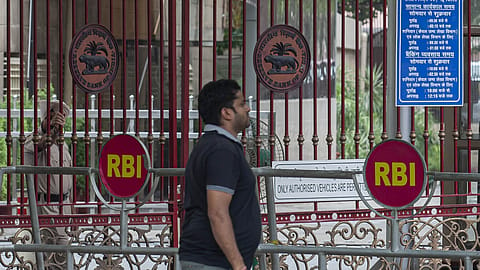RBI tightens norms for lenders investing in AIFs
Banks and NBFCs make investments in units of AIFs as part of their regular investment operations.

The Reserve Bank of India (RBI) on Tuesday ordered regulated entities including banks and non-banking financial companies to stop making investments in alternate investment funds (AIFs) which have downstream investments in existing and recent borrowers.
The banking regulator directed lenders to liquidate their investments in AIFs within 30 days if an AIF scheme, in which RE is already an investor, makes a downstream investment in any such debtor company.
Regulated entities (REs) make investments in units of AIFs as part of their regular investment operations. “However, certain transactions of REs involving AIFs that raise regulatory concerns have come to our notice. These transactions entail substitution of direct loan exposure of REs to borrowers, with indirect exposure through investments in units of AIFs,” the central bank says.
The RBI’s move aims to address concerns relating to possible evergreening through this route.
If regulated entities have already invested into such schemes having downstream investment in their debtor companies as on date, the 30-day period for liquidation shall be counted from date of issuance of this circular, the RBI says, adding that REs shall forthwith arrange to advise the AIFs suitably in the matter.
In case regulated entities are not able to liquidate their investments within the above-prescribed time limit, they shall make 100% provision on such investments, the central bank says.
Investment by REs in the subordinated units of any AIF scheme with a ‘priority distribution model’ shall be subject to full deduction from RE’s capital funds, it adds.
Recommended Stories
“The debtor company of the RE, for this purpose, shall mean any company to which the RE currently has or previously had a loan or investment exposure anytime during the preceding 12 months,” says the regulator.
The development comes weeks after the RBI hiked the risk weights of consumer credit exposure of banks and NBFCs by 25 percentage points to 125%.